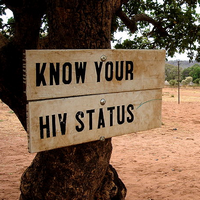
In the post-Cold War world, the rapid social, political and economic transformations associated with globalization have coincided with the continuing spread of HIV/AIDS. In fact, it’s possible to argue that AIDS is both a product and a cause of globalization, understood here as the whole gamut of economic, social, political and epistemological ways in which more and more of the world is brought within similar systems of governance, consumption and imagination. Up to an estimated 14,000 people a day are infected with HIV, and in most parts of the world, infections are increasing more rapidly than are effective responses. In […]
